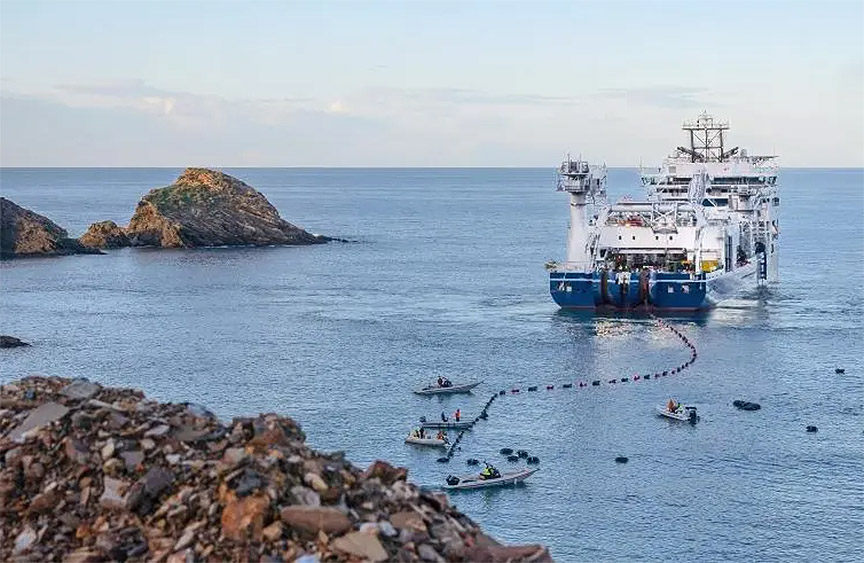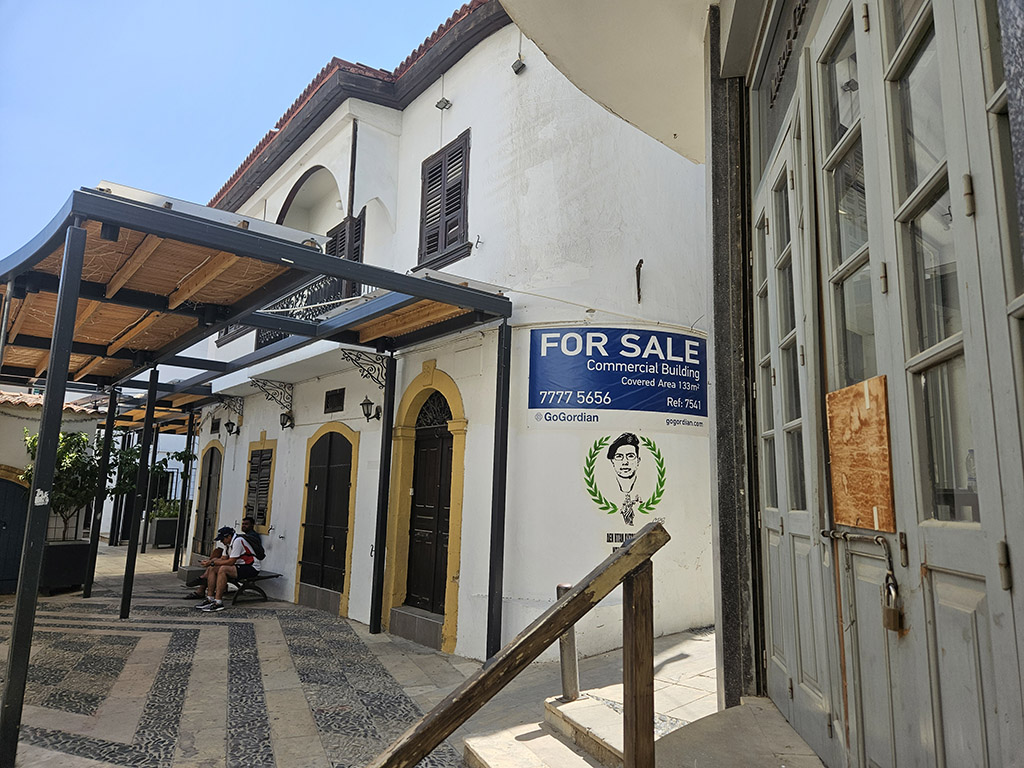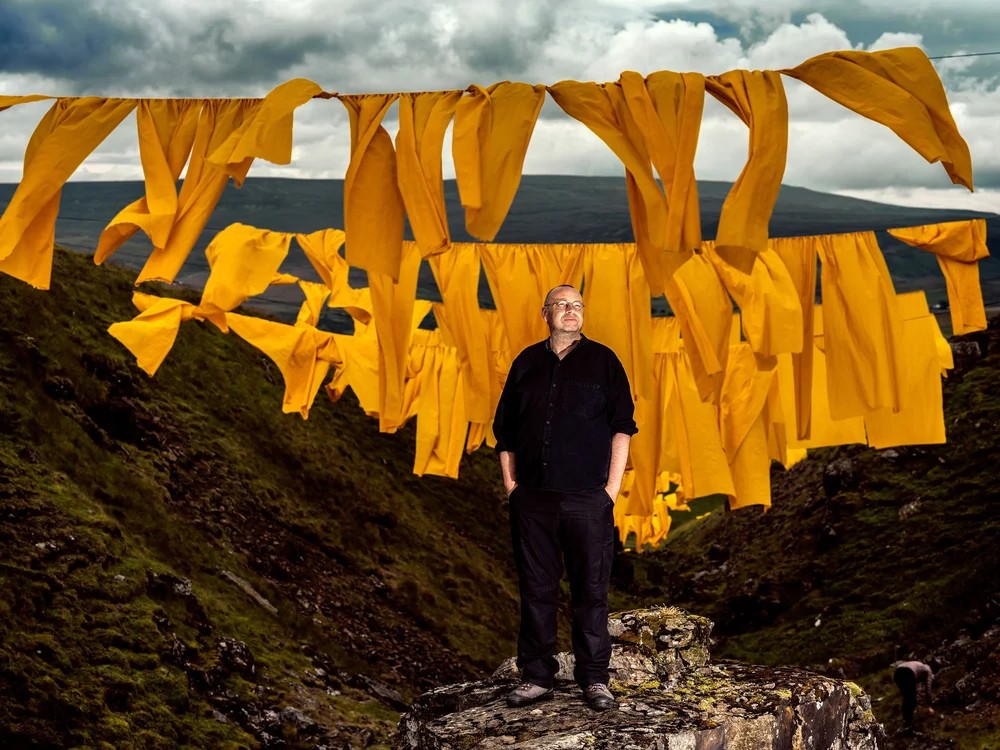Greek Foreign Minister Giorgos Gerapetritis on Tuesday said there are “manifest interests” working to ensure that the Great Sea Interconnector will never be constructed.
The project, if completed, will connect the energy grids of Cyprus, Greece and Israel.
Speaking to Greek radio station Parapolitika, he repeated the positions of both his Prime Minister Kyriakos Mitsotakis and Deputy Prime Minister Kostis Hatzidakis in recent days, stressing that the interconnector is “an extremely important project, primarily of course, for Cyprus, because the aim here is to lift Cyprus’ energy isolation”.
He also said that Greece “has been, from the beginning, not just a helper, but a promoter of this”, and that both he and Mitsotakis have “with repeated statements, made it clear that Greece wishes for the continuation of this project, and that the project will continue”.
He then commented on Cypriot President Nikos Christodoulides’ statements on Monday, wherein he had repeated for what he described as “the umpteenth time” that Cyprus is “fully committed” to the interconnector project, adding “let them hear it in Cyprus, in Greece, in Brussels, wherever they are interested”.
Gerapetritis said of these comments that Christodoulides “has clearly undertaken it to reiterate the position that this is a project of strategic importance”.
“To the extent that certain technical and financial issues are resolved, the project will proceed,” he said.
To this end, the payment of €25 million by Cyprus to Greece’s independent transmission system operator (Admie), which has so far been withheld, will not be the only such payment.
“Of course, it is not only going to be €25m. That is this specific payment. Other payments will follow. There is a distribution of the burden. However, I want to be clear, because I see in recent days that a false narrative is developing, which is extremely dangerous. Unfortunately, there are manifest interests working to ensure this project is not executed,” he said.
Asked whether those interests are in Greece or in Cyprus, he said that “when you have expensive energy, there are interests which want it to remain expensive”.
“In this, we will be ruthless. And because I see that there is, or at least there is beginning to be an underlying tendency for extremes and vulgarities to be said, these are not going to pass us by,” he said.
He was then asked again whether those interests are in Greece or in Cyprus, and said, “look, what is objectively a given is that the price of energy in Cyprus is very expensive”.
“We understand that anyone who has those interests would like it to remain expensive. For us in Greece and Cyprus – and I want to emphasise that all this time there has been a consensus with the Republic of Cyprus, despite tales to the contrary – this project is of great importance,” he said.
Then, he was asked whether the project had stalled due to threats from Turkey, he said that “if we were afraid of any threats from third countries, we would not have carried out our maritime spatial planning”.
“For us, any potential threats are never an obstacle to making a decision which is in the national interest. If we decide to solve the pending issues and move forward, which I hope will happen soon, and Turkey or any other country then chooses to obstruct the project, very specific consequences are foreseen,” he said.
Asked what those consequences may entail, he said the Greek government “has a very specific plan for the protection and preservation of the project”, and that “this means the project will be protected”.
His comments come amid a back and forth between the governments of Cyprus and Greece over the matter of the interconnector, with Christodoulides’ comments on Monday coming in response to Mitsotakis urging the Cypriot government to demonstrate its commitment to the project.
“Obviously, for this project to be completed, Cyprus must also demonstrate in practice that it really wants it,” Mitsotakis said, before adding that an interconnection with Cyprus “does not have the same priority” for Greece.
The annual €25m per year payments are to be made before the interconnector is operational, in effect helping finance the project and ensuring that Admie, the project’s 51 per cent shareholder and implementing body, will have a stable income while investing in the project before it turns a profit.
The Cypriot government has cited both a lack of tangible progress on the project and differences in opinion regarding how the money should be sourced as the reasons behind its withholding of the funds.







Click here to change your cookie preferences